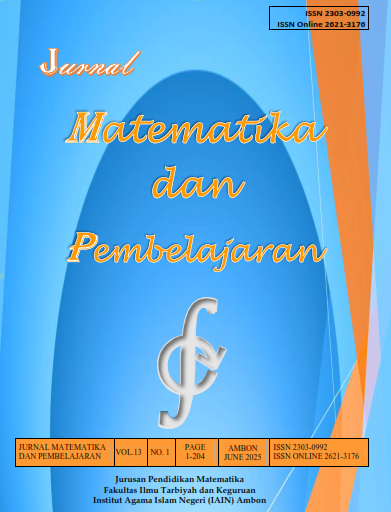PACE LEARNING MODEL AND SELF-ESTEEM ON STUDENTS' STATISTICAL LITERACY ABILITY
DOI:
https://doi.org/10.33477/mp.v13i1.9284Abstract
Statistics is the science that deals with the collection, processing, analysis, and presentation of data. In fifth grade elementary school, students learn that statistics can be used to understand information from the data they collect. This study aims to analyze the influence of the PACE (Project, Activities, Cooperative, Exercises) learning model and self-esteem on students' statistical literacy Ability. The sample of the research are fifth-grade students at Karya Baru state Elementary School in Baubau City. The method used is a Quasi-Experimental Design with a 2x3 factorial design. Data collection techniques include tests of statistical literacy Ability and self-esteem questionnaires. Data analysis is conducted using normality tests, homogeneity tests, and two-way ANOVA tests.The results of the study indicate a significant effect of the PACE learning model on students' statistical literacy abilities. No significant effect of self-esteem on statistical literacy Ability was found. Additionally, the analysis shows that there is no interaction between the PACE learning model and self-esteem in influencing students' statistical literacy Ability. This emphasizes the importance of implementing appropriate learning models to enhance statistical literacy using the PACE learning model.
Downloads
Published
Issue
Section
License
Copyright (c) 2025 Alman Alman

This work is licensed under a Creative Commons Attribution-NonCommercial-ShareAlike 4.0 International License.







